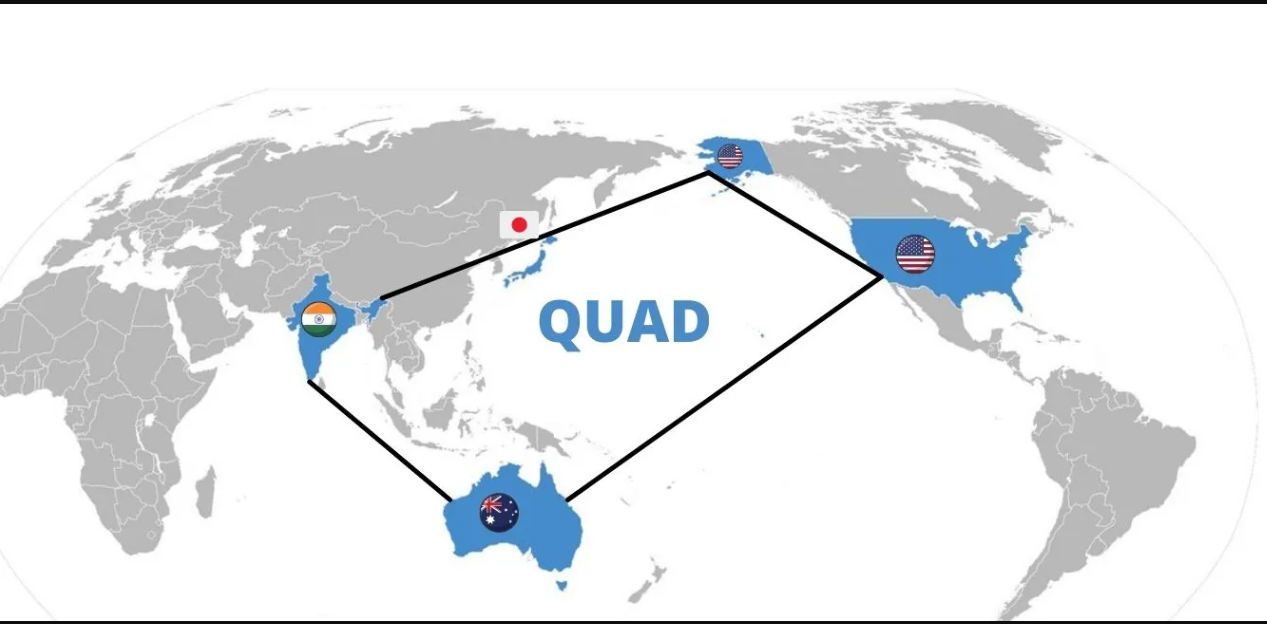
Zainab Zaheer, Development Consultant
May 20, 2022
Besides tackling COVID-19 and climate change, a unifying force within the Quadrilateral Security Dialogue is undoubtedly the member countries’ response to China. As the May Quad summit is underway, analysts must assess both how the Quad will react to China as well as how China will respond to the Quad alliance.
Richard Javad Heydarian, Professorial Chairholder in Geopolitics, Polytechnic University of the Philippines
Apr 22, 2022
The U.S. and India are currently in a sort of golden age of relations - both of them using the other to build up capital against China’s influence. However, India’s Cold War history with Russia leaves it on shaky terms with the U.S. amid the Ukraine crisis, and adds an unforeseen wrinkle to America’s best-laid plans for the region.
Sajjad Ashraf, Former Adjunct Professor, National University of Singapore
Mar 15, 2022
America finally issued a broad statement on its Indo-Pacific strategy, predictably addressing concerns about China’s influence and spelling out its intention to play into its allies' favor. Meanwhile, ASEAN must respond to the latest development to retain their own autonomy and stability in what many are sure to see as rising tensions.
Chen Jimin, Guest Researcher, Center for Peace and Development Studies, China Association for International Friendly Contact
Mar 14, 2022
The Biden administration recognizes the importance of sustained engagement in the region, but it can’t ignore Washington’s other interests around the world. Thus, the prospects for America’s Indo-Pacific Strategy are uncertain.
Sun Chenghao, Fellow, Center for International Security and Strategy of Tsinghua University; Munich Young Leader 2025
Mar 10, 2022
Some believe the U.S. has the ability to take on a two-ocean strategy — the Atlantic and Indo-Pacific — but China-Russia issues loom large. They will guide the approach to China by the West.
Sun Chenghao, Fellow, Center for International Security and Strategy of Tsinghua University; Munich Young Leader 2025
Mar 04, 2022
The U.S. effort to impede China’s rise is in conflict with its regional strategy to gain benefits. To whip up its allies, it makes groundless accusations against China, but these are unlikely to persuade other countries to become America’s anti-China vanguard.

Zhao Minghao, Professor, Institute of International Studies at Fudan University, and China Forum Expert
Feb 26, 2022
There is no need for China to overreact to the latest strategy report, but it needs to be prepared for pressure from the United States, which will likely focus on the Indo-Pacific region for decades to come.
He Weiwen, Senior Fellow, Center for China and Globalization, CCG
Feb 25, 2022
The Indo-Pacific Economic Framework proposed by the United States should blend with existing regional free trade arrangements, which are already well-developed. A quick look at the numbers shows there’s no advantage to leaving out Asia’s trade behemoth.
Zhang Monan, Deputy Director of Institute of American and European Studies, CCIEE
Feb 16, 2022
Washington intends to shed its reliance on multilateral mechanisms and form a new economic framework based on bilateral consultations. The IPEF is more of a contract aimed at solving particular issues than an agreement to ratchet up economic integration. And, of course, it aims to dent China’s influence.
Zhang Yun, Professor, School of International Relations, Nanjing University
Feb 13, 2022
The United States and its allies need to make a strategic shift in their Asian strategy, away from their highly militarized mindset and toward thinking about what countries in the region want.
Back to Top

- China-US Focus builds trust and understanding between the U.S. and China through open dialogue among thought leaders.
- Our Offerings
- Topics
- Videos
- Podcasts
- Columnists
- Research Reports
- Focus Digest
- Stay Connected
-
Thanks for signing up!
- Get the latest stories from China-US Focus weekly.